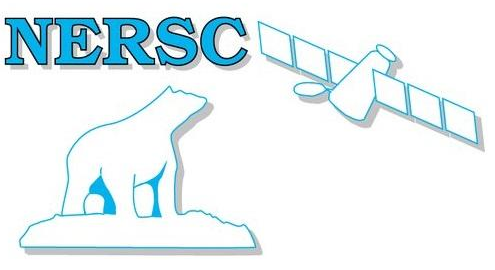Description of the organisation:
NERSC is an independent non-profit research foundation conducting climate and environmental research funded by research councils, the European Commission, space agencies, national and international government agencies, business and industry, as well as through private donations. The Nansen Center is a national environmental research institute and receives basic funding from the Ministry of Climate and Environment through the Research Council of Norway. As a national climate and environmental research institute the Center has strengthened its expertise through institutional strategic research programs within: 1) – studies of regional climate change, including studies of sea level change and local air quality in urban areas, 2) – operational oceanographic studies and services in the Arctic, focusing on integrating observations and the development of ocean, marine ecosystem/biogeochemistry and sea ice modelling and forecasting, 3) – climate studies with a focus on teleconnections and the coupling between the Arctic and monsoon systems in India and China, 4) – and integrated multidisciplinary climate and environmental research. During 2017, the scientific staff published 65 scientific articles in international peer reviewed journals, one book and three book chapters. In addition, the scientists at the Center published 73 conference proceedings, posters and scientific presentations, 18 technical and other reports, as well as nine communications or chronicles – in total 174 publications in 2017. NERSC contributed to the Intergovernmental Panel on Climate Change (IPCC) reports.
Expertise particularly relevant for the project:
NERSC has published peer reviewed papers (Shalin et al., 2018 and Simon et al., 2015) focusing on detection and analysis of biogeochemical provinces based on satellite and TOPAZ ice-ocean-marine ecosystem coupled model products. Dr. Samuelsen co-authored both publications. Dynamical detection of the biogeological provinces out of CMIP model ensemble products requires clustering analysis based on machine learning methods. The Python-base machine learning software package for marine biogeochemical/ecosystem analysis is currently under development in SubMAPP project (2018-2021). NERSC has in-house experts in working with CMIP data for climate change studies and co-hosted CMIP6 data workshop in May 2018. NERSC project manager was leading dynamical downscaling project of CMIP5 ocean future projection products under SI-CAT project (2015-2019) and operational habitat suitable index mapping projects for fishery management under RECCA project (2011-2015) from 2013 to 2017 at Japan Agency for Marine-Earth Science and Technology (JAMSTEC), Japan.
For more information visit NERSC website.
